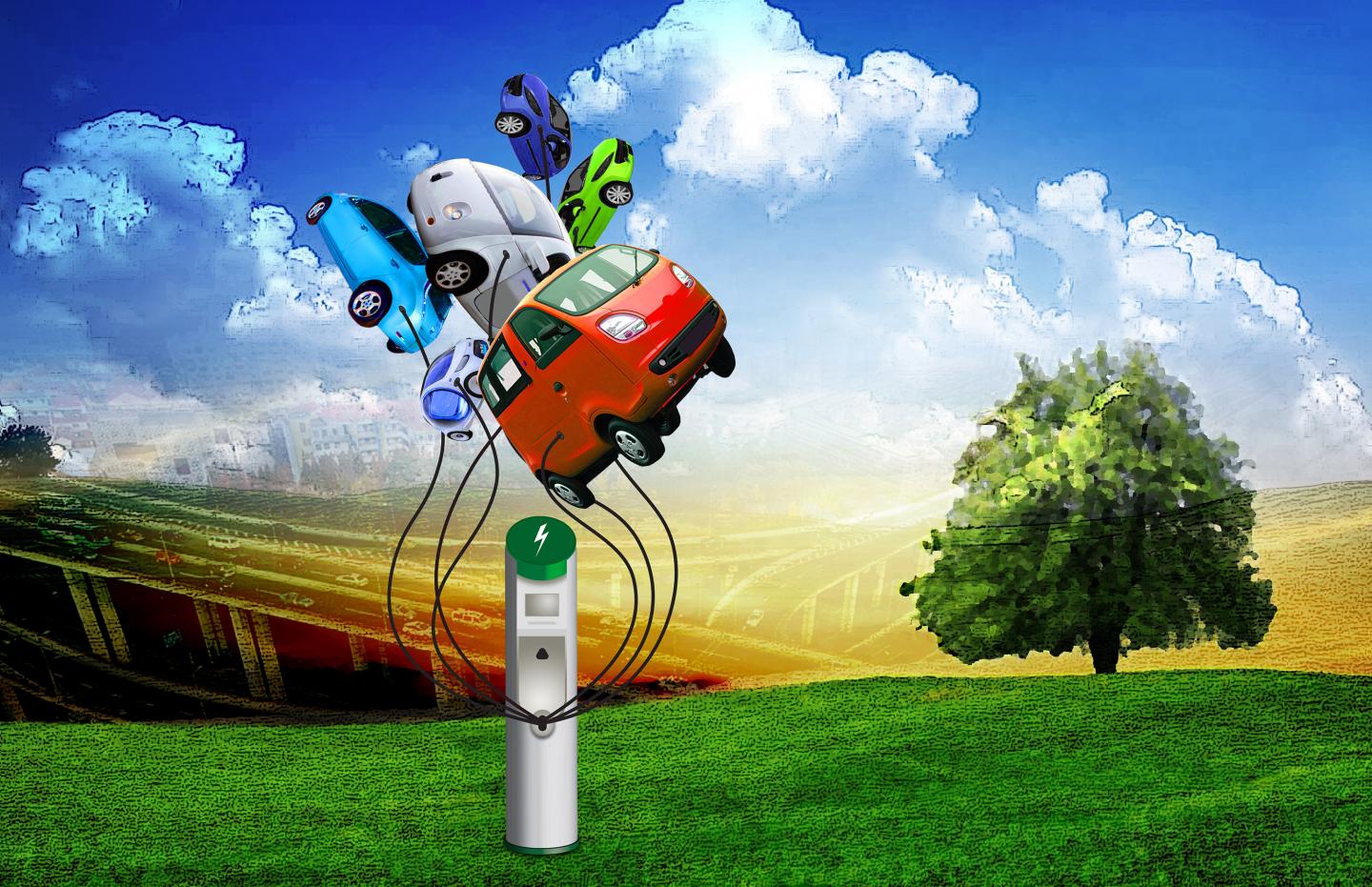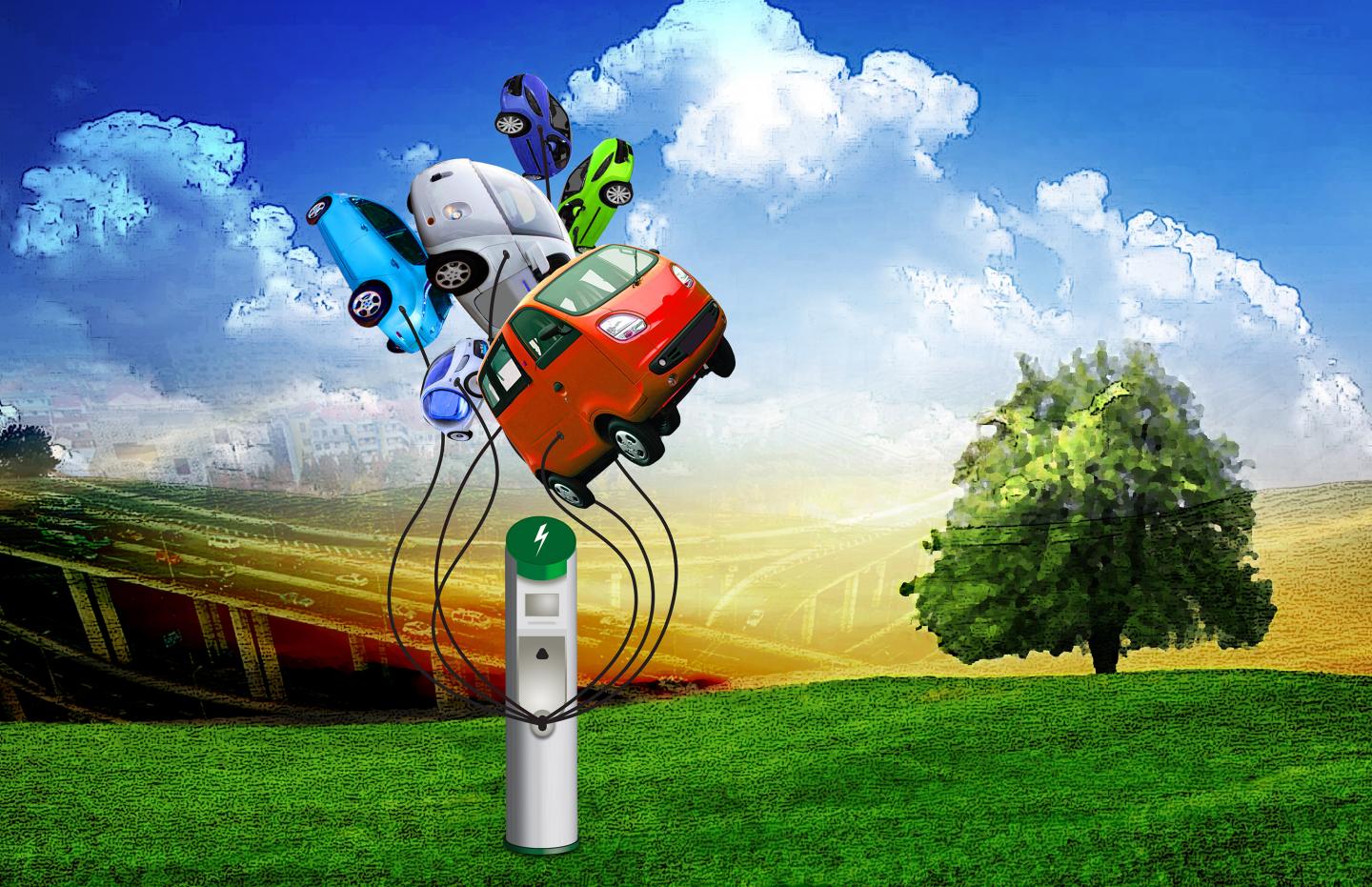
Credit: US Department of Energy's Ames Laboratory
As increasing consumer interest in electric vehicles drives the demand for supplies of lithium and cobalt (ingredients in lithium-ion batteries), the Critical Materials Institute will begin new efforts this July to maximize the efficient processing, use, and recycling of those elements.
"The global tech economy is heating up, and we're likely to see high demand for a growing number of materials," said CMI Director Alex King. "We are trying to anticipate possible short-term supply issues through specifically targeted research and industry partnerships."
The lithium and cobalt research is part of a larger effort totaling 36 separate projects for the U.S. Department of Energy's Innovation Hub, which originally launched in 2013 to pursue reducing, recycling and substituting rare-earth metals in many technologies.
While rare-earth metals will remain an area of expertise, other key manufacturing material supplies are in need of the Hub's fast-moving collaborative approach. Research from National Laboratories and academic institutions is combined with engineering know-how from manufacturers, economic analyses, and assistance from AI and machine learning to rapidly find solutions to domestic shortages of manufacturing materials.
The list of materials under CMI's scrutiny has expanded to include not only lithium and cobalt, but also manganese, vanadium, gallium, indium, tellurium, platinum group metals, and graphite.
"These present possible supply challenges for a number of reasons," said CMI Deputy Director Rod Eggert. "Some of them are produced in small quantity as by-products of other mining processes; some are subject to unstable geopolitical conditions. All of them will be in greater demand as new battery, solar cell, and fuel cell technologies emerge in the near future."
"Keeping manufacturing and industry in the loop has made CMI agile, and better able to anticipate market demands than traditional research models," said King. "Our sheer number of patents and two recent R&D100 Awards have proven our methods work, and we're prepared to meet these additional challenges."
The Critical Materials Institute is a Department of Energy Innovation Hub led by the U.S. Department of Energy's Ames Laboratory and supported by DOE's Office of Energy Efficiency and Renewable Energy's Advanced Manufacturing Office, which supports early-stage research to advance innovation in U.S. manufacturing and promote American economic growth and energy security. CMI seeks ways to eliminate and reduce reliance on rare-earth metals and other materials critical to the success of clean energy technologies.
Ames Laboratory is a U.S. Department of Energy Office of Science national laboratory operated by Iowa State University. Ames Laboratory creates innovative materials, technologies and energy solutions. We use our expertise, unique capabilities and interdisciplinary collaborations to solve global problems.
Ames Laboratory is supported by the Office of Science of the U.S. Department of Energy. The Office of Science is the single largest supporter of basic research in the physical sciences in the United States, and is working to address some of the most pressing challenges of our time. For more information, please visit science.energy.gov.
###
Media Contact
Laura Millsaps
[email protected]
@Ames_Laboratory
http://www.external.ameslab.gov
Original Source
https://www.ameslab.gov/news/news-releases/cmi-expands-research-in-tech-metals-rapid-growth-in-electric-vehicles-drives





